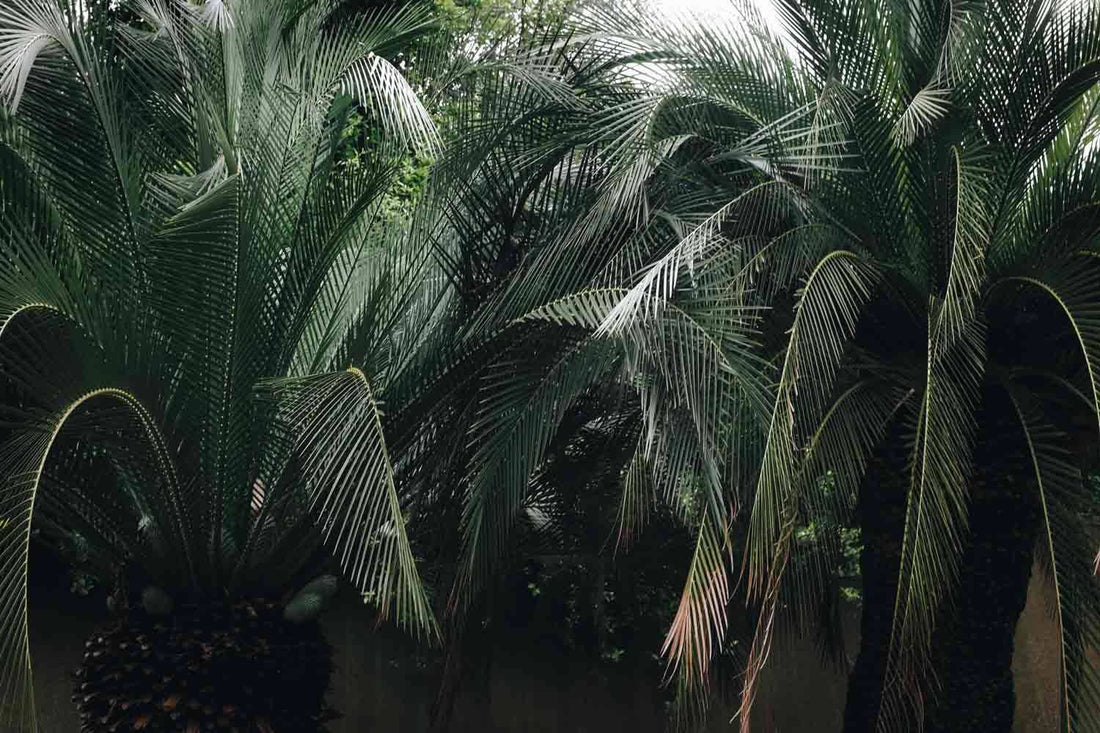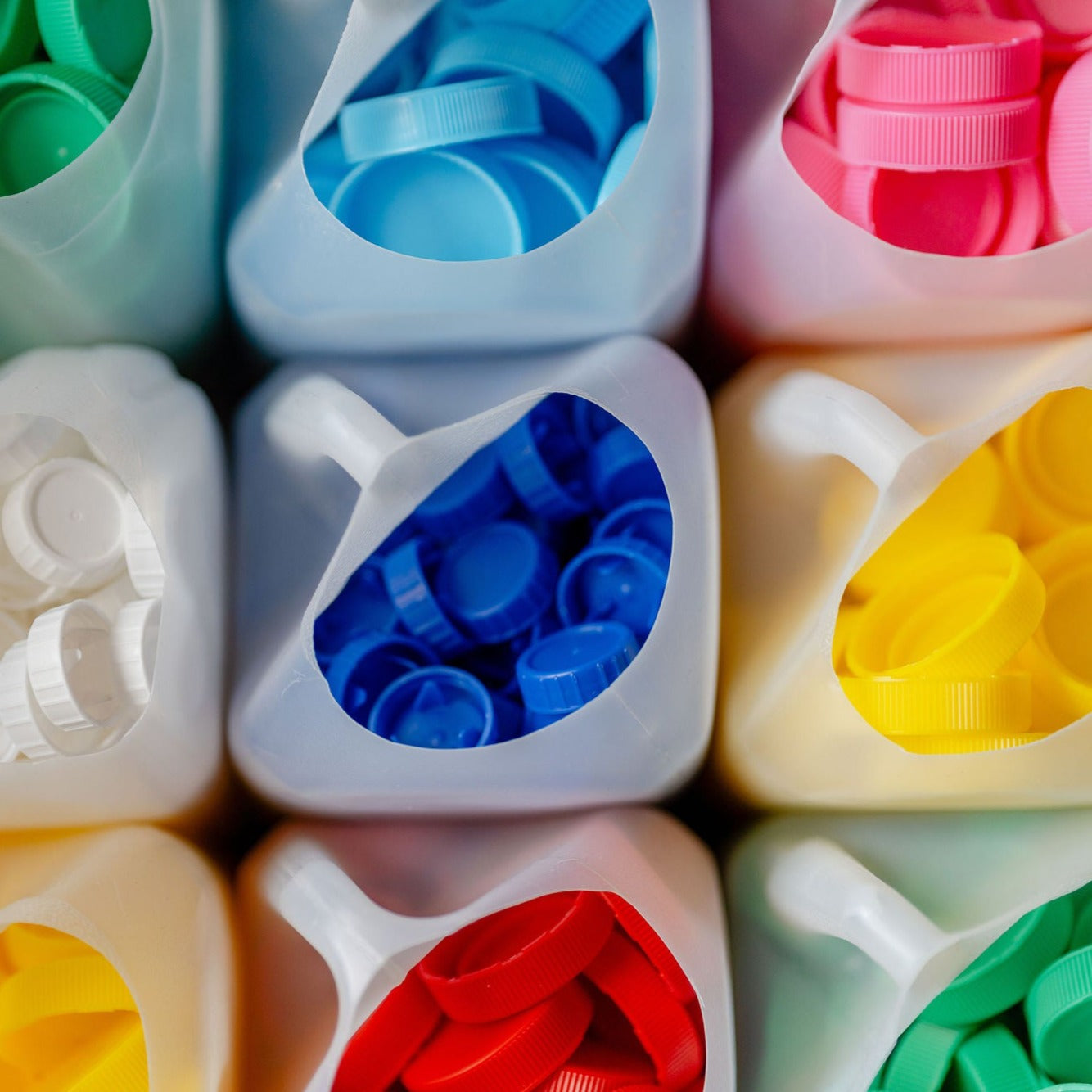
Palm Oil - Where to begin before it's too late!
By Sherron Dalziel

A worldwide catastrophe, palm oil is not just on our doorstep, it's in our homes. It's in our kitchens and bathrooms. We eat it, we wash with it, we clean with it and we slather it on our bodies and faces.
But why is it so bad?
Apart from it being off the scale in saturated fats and the resultant of heart disease and other health impacts you mean? The sheer production of palm oil is killing our planet. It's decimating our land and air, destroying animal habitats and entire species and compromising the lives of those who would otherwise farm with diversity and dignity. It is found in roughly half of products on supermarket shelves and is the most widely used oil in the world.
Impact on the environment
These palm oil plantations thrive in a humid rainforest environment with 80 to 90% of all production coming from Malaysia. This is a $44 billion dollar business. and in order to meet demand, the current rate of deforestation could see the complete destruction of the rainforest. One plant requires a 3 meter diameter around its base. The equivalent of 300 football fields is currently being cleared every hour in order to meet demand and the impact on the environment is irreparable.
The land is usually peaty and often burned for clearing. The resultant smoke, soil erosion and loss of habitat has seen entire species all but wiped out. Apart from the animal carnage due to the clearing practices it is then the loss of food, protection and the ensuing dangers from such exposure.
In the past 2 decades some 50,000 orang utans have died. Tigers, rhinos, Pygmy elephants, sun bears and proboscis monkeys are now endangered. The International Union for the Conservation of Nature (IUCN) found that this industry damages more than 190 threatened species particularly in Indonesia and Malaysia.
Entire communities and livelihoods have been destroyed, the only alternative being to join the pillaging and plundering for a low wage and even lower self respect.

And it's because of us - the great consumer. We are perpetuating the horror by continuing to buy and use products containing palm oil. We have a responsibility to cut down our individual palm oil consumption. Not everybody can completely cut it out but we can all reduce the amount we eat and use.
Identification and certification
Labelling is a start but a minefield of confusion. If a product claims to be 100% vegetable oil with no animal fats then it is guaranteed to be a derivative of palm oil. Products that are made of Certified Palm oil are marginally better. This oil is being farmed utilising honourable sustainability commitments. Look for the RSPO label or the Green Palm label.
What are the alternatives to palm oil?
As far as other alternatives are concerned, a team at the University of Bath are chemically engineering a product that will mimic the properties of Palm oil but at this stage would prove to be very costly and therefore not a cost efficient alternative. Replacing palm oil with another type of oil would merely see the demise of yet another environment and unfortunately endanger a whole new set of species.
To quote Erik Meijaard, Independent Researcher at the University of Queensland, "To put a stop to the destruction we must work towards deforestation- free palm oil and make sure our attempts to limit palm oil use are influenced by solid scientific understanding and the consequences."
In the meantime do your own checking on product labels and do your own research on palm oil free alternatives where possible.
Common products containing palm oil:
As far as other alternatives are concerned, a team at the University of Bath are chemically engineering a product that will mimic the properties of Palm oil but at this stage would prove to be very costly and therefore not a cost efficient alternative. Replacing palm oil with another type of oil would merely see the demise of yet another environment and unfortunately endanger a whole new set of species.
To quote Erik Meijaard, Independent Researcher at the University of Queensland, "To put a stop to the destruction we must work towards deforestation- free palm oil and make sure our attempts to limit palm oil use are influenced by solid scientific understanding and the consequences."
In the meantime do your own checking on product labels and do your own research on palm oil free alternatives where possible.
Common products containing palm oil:
- Bread: Buy from the bakery not the supermarket and ask the ingredients
- Chips. Remember vegetable oil is really palm oil so look for olive, sunflower or coconut oil.
- Margarine: just don't use it
- Ice cream: check the label or make your own
- Pizza bases: many store bought ones do but check the label
- Instant noodles: don't go there
- Chocolate: rare but possible
- Soap: buy from local makers and ask
- Shampoo: as with soap support local makers
None of the products stocked on Banish contain palm oil.
There are some great organisations too you can get involved with as the greater awareness of this environmental travesty, the more possible it is to protect what we have left.
- Palm Oil Action Australia
- Palm Oil Innovation Group
- Orangutan Conservancy
- Rainforest Trust
- Just to name a few
To play on the safe side download the Palm Oil Scanner App. Simply scan the barcode of any product to discover if it contains palm oil.


